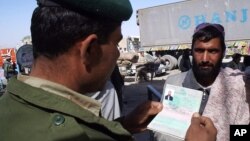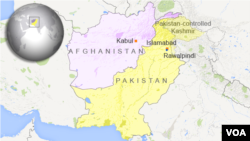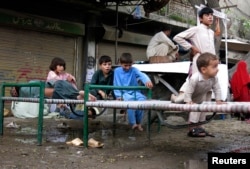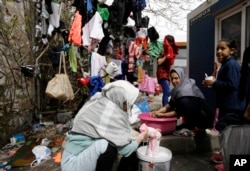A new poll in Pakistan says a sweeping majority, or 90%, of its citizens, support blocking Afghans from entering the country without a visa in order to help counterterrorism efforts.
The field survey of 1,755 men and women in rural and urban areas of all four Pakistani provinces was conducted from January 25 – February 01, said Gallup Pakistan, the local affiliate of Gallup International.
It said that only 9 percent Pakistanis opposed the restriction.
Pakistan survey shows belief porous border is major factor in terrorist attacks.
Authorities in Islamabad maintain that anti-state militants sheltering in border areas of Afghanistan are behind terrorist attacks in Pakistan.
The two countries share a more than 2,500-kilometer long porous border called the Durand Line. Pakistani officials estimate up to 50,000 Afghans move across the border every day through two officially sanctioned crossings at Torkhum and Chaman.
Divided families
The travelers include divided families who are issued special passes by authorities in both countries to enable them to see their relatives.
A large number of the border crossers are also from around three million Afghans living in Pakistan as registered refugees fleeing the conflict in their homeland, or as illegal economic migrants.
The refugee population uses a proof of registration card issued by Pakistani authorities to travel across the border while illegal migrants rely on bribes and unauthorized crossing points traditionally used by smugglers.
Dominant refugee group
Economic and security challenges have forced tens of thousands people in Afghanistan to flee the country in recent months.
The United Nations says Afghans make up the second largest group of people arriving in Greece after Syrians, with percentages varying from 28 percent in January to 25 percent in February.
The rate, according to U.N. officials, shows an increase from 2015, when about 21 percent of arrivals through the Mediterranean were from Afghanistan. Women and children make up more than 60 percent of sea arrivals to Greece, more than double the figures documented last year.
Strained ties
The porous border between Pakistan and Afghanistan has long strained bilateral ties.
Afghanistan is strongly opposed to visa and other monitoring restrictions for the divided families. It has rejected long-standing Pakistani proposals for imposing strict measures to discourage terrorist and other illegal cross-border movements.
Afghans insist the restrictions will add to the problems divided families face.
The issue remains at the center of bilateral tensions because Islamabad believes without effectively monitoring the cross-border moment, counterterrorism efforts in Pakistan and Afghanistan will remain under pressure.







